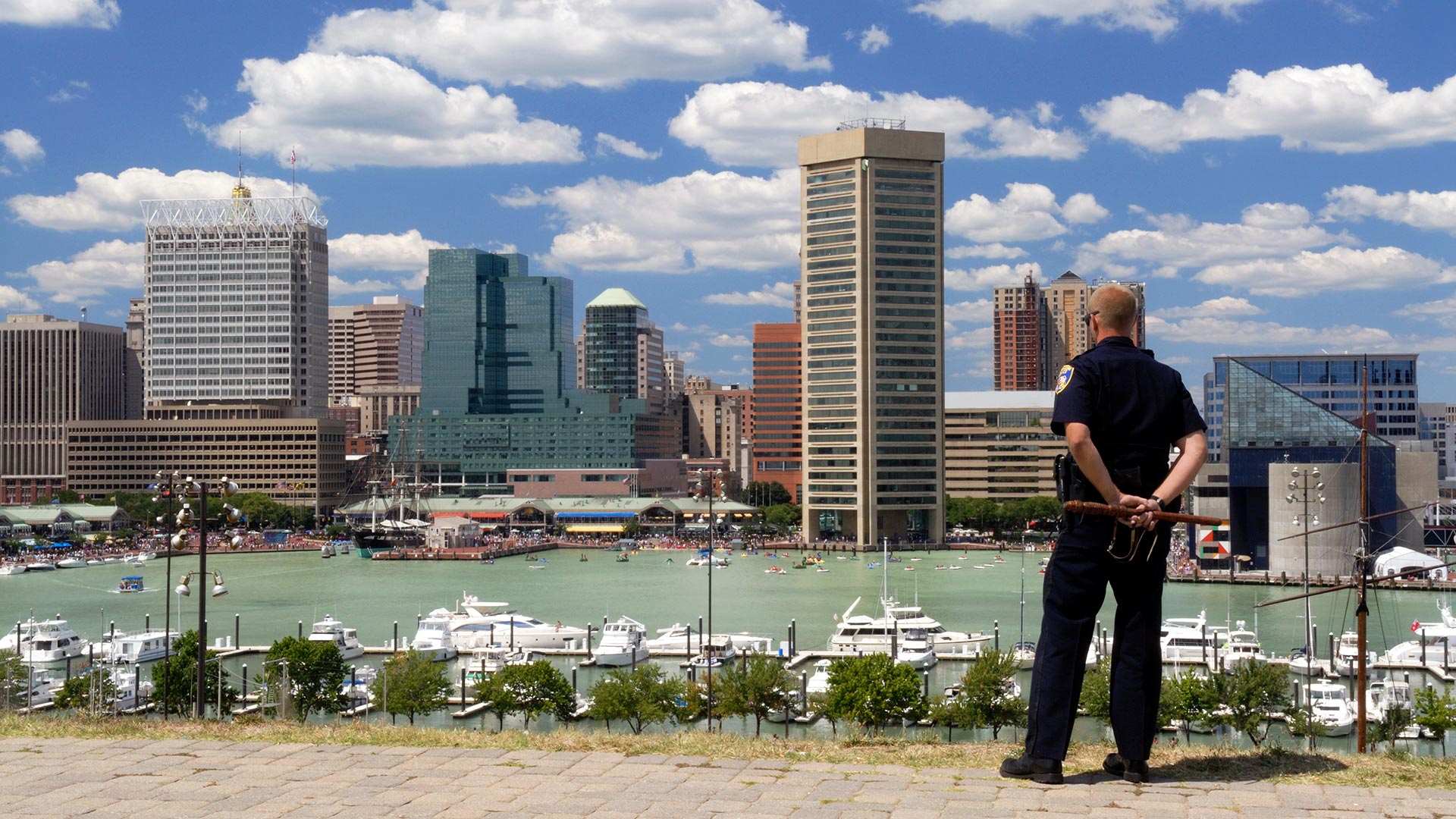
The city of Baltimore is experimenting with a novel strategy to address police staffing shortages — hiring civilian investigators.
Baltimore Mayor Brandon Scott and Police Commissioner Michael Harrison recently announced a plan to bring on civilian investigators who will work alongside sworn personnel in order to address the police department’s personnel shortage as crime continues to plague the city.
The plan is covered by the city’s $4 billion budget, and is intended to “maximize the effectiveness of limited sworn resources.”
Under the new proposal, civilian investigators will focus on low-level property crimes, cold cases and background checks, in addition to intelligence-gathering and internal affairs–related work.
“This plan is not about taking away jobs from sworn members of the department. It is about growing the department and creating additional civilian capacity while being smart about how we deploy officers,” Harrison said in the announcement. “We are aligning our staffing plan and our budget resources to bring qualified professional staff to work alongside our officers to prevent, deter and reduce crime more effectively.”
Harrison said that the Baltimore Police Department will convert 30 vacant sworn officer positions into 35 civilian positions that will be paid $49,000 versus officers’ $60,000. Civilian positions will also go toward the mayor’s Group Violence Reduction Strategy and the department’s Telephone Reporting Unit.
The commissioner added that the strategy is cost-neutral.
Currently, the BPD is understaffed by around 350 positions, a situation that many other police departments across the country are also facing.
Baltimore’s new civilian hiring strategy was inspired by the Phoenix Police Department, which hired 25 non-sworn investigators and eight staff members to its police assistant staff to assist its sworn officers.
Mayor Scott hopes the additional investigators will help relieve the burden on the department’s sworn officers.
“This will free up our sworn detectives to better meet the needs of our residents by being out on our streets, deterring and solving crimes,” he said.
As crime continues to rise in the city, staffing shortages have slowed response times and compounded the problem.
According to police data, the city has recorded 96 homicides and 193 non-fatal shootings in 2022, up from 88 homicides and 160 non-fatal shootings during the same period last year.
“This is an opportunity for us to evolve policing, to focus our sworn police officers on violent folks who are using guns to kill women, children, grandparents on our streets and focus on removing them from the communities,” Scott said.
“This will help us in the short term, but also in the long term as we’re building those relationships, freeing up hours and hours and hours of patrol hours for our officers to do the things we want them to do, but also providing other jobs and opportunities and then a new entryway into our department,” the mayor explained.
Harrison said the department will provide a training program to meet the needs of less-experienced investigators and veterans alike.
“We want to bring people up to speed to make sure they’re compliant with state law, with departmental policy, how we do things governed by policy and the consent decree here in Baltimore before we employ them and send them out to conduct investigations,” Harrison said.
Harrison believes the positions will posted at the end of May, and hopes they will attract former police officers.
Applicants must complete a background check and a curriculum of one-month training. The commissioner stated that law enforcement experience is not necessary, but that investigatory skills are required for the job.





